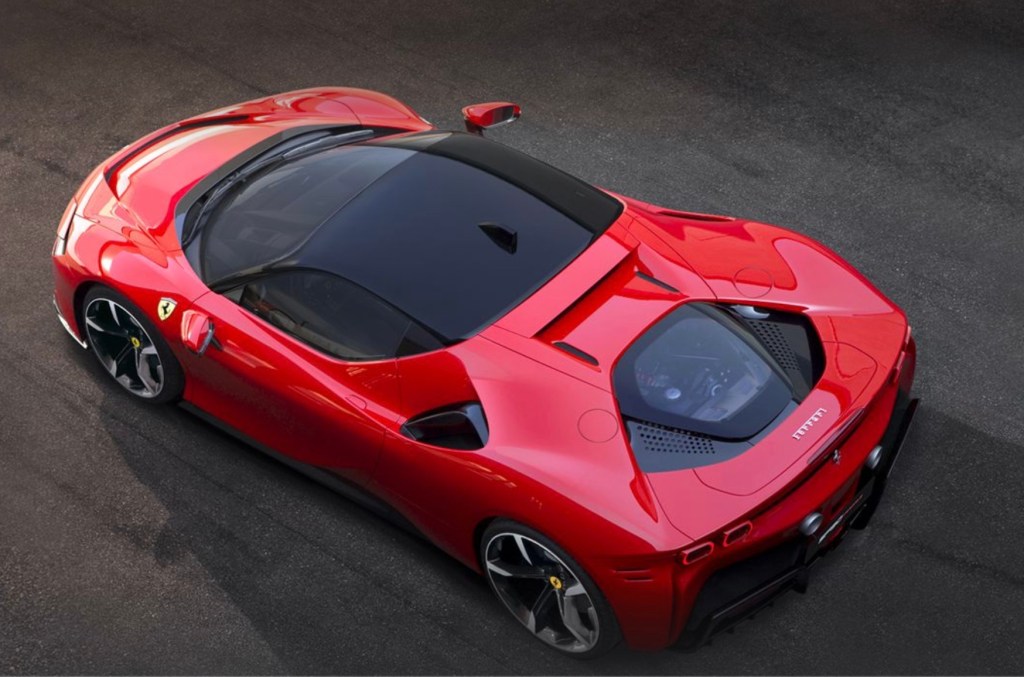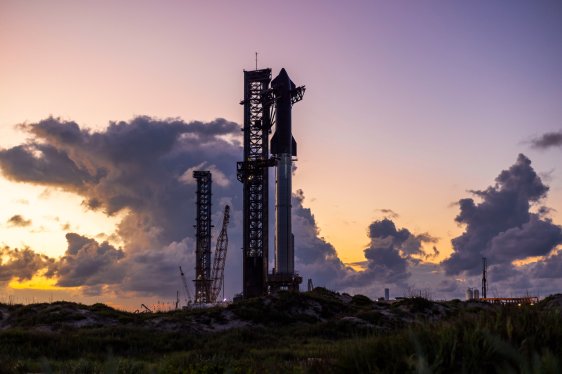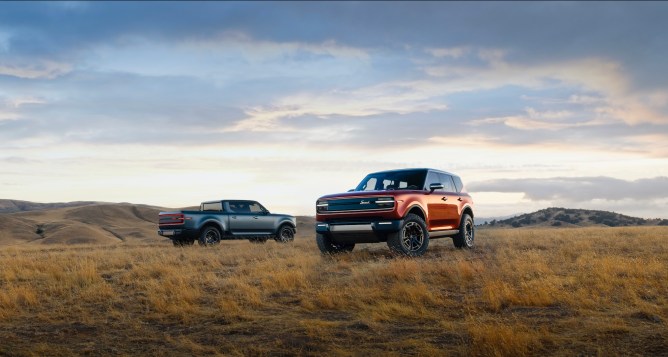Ferrari shared details on its plan to launch its first electric vehicle by 2025 as it aims to go carbon neutral by 2030.
The battery-electric supercar will set the tone for Ferrari’s future EVs, CEO Benedetto Vigna said Thursday at the company’s Capital Markets Day from its headquarters in Maranello, Italy.
The Italian luxury carmaker said it plans for 60% of its sales to come from hybrid and fully electric models by 2026. It expects that share to increase to 80% by the end of the decade.
Ferrari already has four hybrid models. The first nameplate, the 1,000-horsepower, $513,000 SF90 Stradale plug-in hybrid, launched in 2019, drawing upon the brand’s experience in Formula 1 racing.
Electric motors and battery modules for its future EVs will be built in Maranello.
Ferrari is among the last in its ultra-rarefied segment to reveal an EV. Bugatti, Bentley, Lamborghini, Rolls-Royce, Aston Martin and McLaren plan to go fully electric by the end of the decade.
They face a common challenge in maintaining their brand’s exclusivity while shifting from a legacy of big combustion engines to battery packs. How will they appeal to customers? Spoiler: It won’t be range. More likely the marketing message from most ultra-luxury brands will emphasize the EV’s superior acceleration and environmental chops.
Ferrari said its own EV will stand out for its weight, sound, engine power density and emotional experience. The 75-year-old brand said it will adhere to its longstanding philosophy of ensuring exclusivity.
“At Ferrari we always deliver one car less than the market demands,” Vigna said Thursday. “I can assure you that this will never change.”
The company plans to develop its EVs through strategic partnerships that provide access to technology without wreaking havoc on Ferrari’s bottom line. The challenging economics of developing an EV makes it hard for low-volume automakers like Ferrari to justify spending the $1 billion to $2 billion required to build a battery-electric model from scratch.
Large manufacturers such as Ford and Volkswagen are investing tens of billions of dollars shoring up their battery-electric lineups. Meanwhile, a slew of EV manufacturers that went public by merging with SPACs and have yet to generate revenue are floundering finding funding.
Electric Last Mile Solutions announced Monday that the company is filing for bankruptcy after trying to launch a commercial EV. Faraday Future has also warned that it does not currently have enough money to produce the mass-market sedan slated to follow its long-awaited FF 91 sports car.
Ferrari also said Thursday that it will unveil its first-ever SUV, the V12-powered Purosangue, in September. The SUV is expected to arrive at dealerships early next year with a starting price around $300,000.
Profitability in the SUV segment is all but assured due to rising consumer demand and high margins. The Purosangue’s closest competitor, the Lamborghini Urus SUV, became the brand’s bestseller soon after its dealer showroom debut. At Maserati, Ferrari’s sister brand under parent company Stellantis, its first-ever SUV comprises 60% of its lineup.
However, Ferrari said it will keep the Purosangue to less than 20% of its sales mix.






